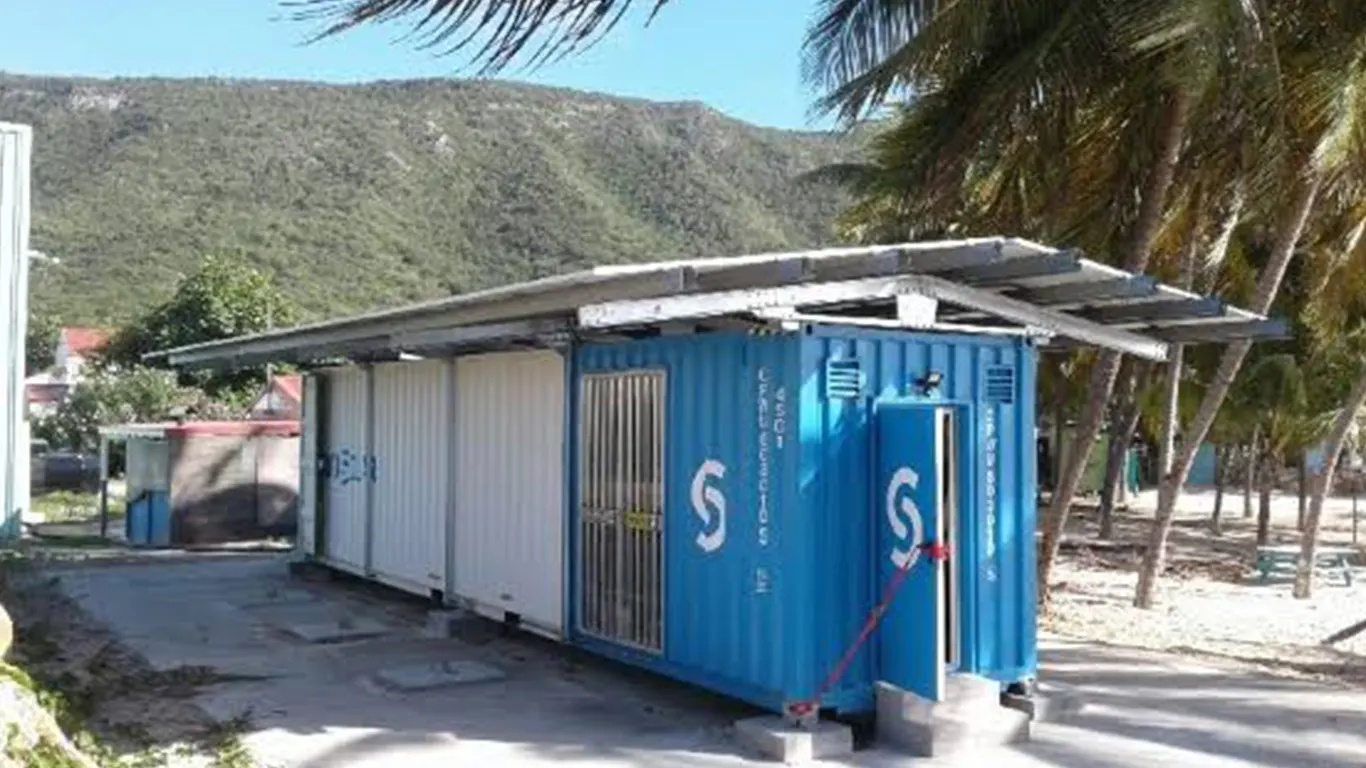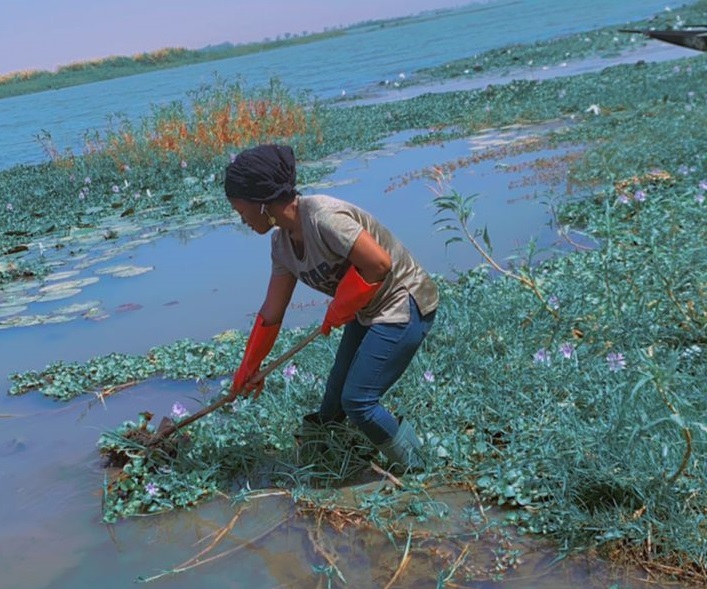Only about 19 percent of people in the Democratic Republic of the Congo had access to electricity in 2022, according to World Bank data. Those in urban areas have better access at 41 per cent but this falls precariously to 1.1 per cent in rural areas, where Dikya Group operates. Congolese entrepreneur Julien Vikemba founded Dikya Group as a private company in 2017 to help rural farmers, with no electricity, access solar-powered cold rooms to store their produce and reduce post-harvest losses. The firm mostly targets livestock and poultry farmers. Vikemba says many poultry farmers throughout DR Congo lose the equivalent of 40 percent of their chicken meat every day due to a severe lack of adequate storage units. It is a problem Vikemba understands well.
“We grew up with chicken, goats, and ducks in the family courtyard. And growing up, I observed that my father had to sell his mature chicken as quickly as possible. The more chickens stay in the coops after their maturity, the more they consume a lot of extra feed. And once they are slaughtered, they must be sold out within a brief period, otherwise, they will start rotting,” he explained.
“Hence, this innovative solution strives to amplify the resilience of chicken farmers in the Democratic Republic of Congo by effectively mitigating the significant losses incurred after the slaughter of livestock in the value chain.” The company has a total of seven permanent employees and four casual employees. They assemble the cold rooms from recycled containers. “We arrange them carefully inside and outside, to transform them into a solar cold room. This technology targets all farmers in the DRC who have problems storing their animal meat products because access to electricity is a headache,” he said. Farmers without access to cold rooms often sell their products at throw-away prices. More often they encounter huge losses when they slaughter animals or poultry and the meat rots before buyers arrive. When food is discarded, all inputs used in producing, processing, transporting, preparing, and storing discarded food are also wasted.
Food loss and waste also exacerbates the climate change crisis with its significant greenhouse gas (GHG) footprint. Production, transportation, and handling of food generate significant Carbon Dioxide (CO2) emissions and when food ends up in landfills, it generates methane, an even more potent greenhouse gas, the United Nations says. Indeed, about a third of all human-caused greenhouse gas emissions is linked to food. “By reducing losses after slaughtering chickens, Dikya thus contributes to drastically reducing food waste and promoting more sustainable food production,” Vikemba says. The use of solar, a renewable form of energy, also helps reduce the greenhouse gas emissions associated with food production.
“This technology improves food safety and reduces post-slaughter losses. This means that more chicken and beef products will be available on the market, which could help meet dietary needs,” he adds. Vikemba says the use of recycled containers and solar energy helps the company reduce its carbon footprint and minimise the environmental impact of its activities. Vikemba was always passionate about entrepreneurship. “Already when very young, I developed small businesses to make money from them, especially since my parents were very strict financially.
I sold sugarcanes that I cut into several pieces to resell,” he says. “And I stood out from the other sellers at the time, because I was very careful, always very clean. I had installed chairs for my customers.” He was also inspired by his uncle, a respected businessman, who is advocating for more locally led solutions and local entrepreneurs taking an active role in driving DR Congo’s economy. In his desire to help farmers and Congo’s businesses, Vikemba attended fairs, exhibitions, and agricultural industry events to present the solar cold room solution.
The company also advertised in chicken farmers’ cooperatives meetings to make them aware of the importance of cold rooms. Although he plans to expand his reach, Vikemba is curtailed by many challenges including limited transport infrastructure, which makes transporting raw materials and distributing finished containers difficult. The profit margins are extremely low, affecting growth. The group is now seeking to diversify its sources of revenue by developing new poultry products and offering other innovative technological services. Thus, Vikemba was excited in late 2022 when Dikya successfully applied to join Adaptation and Resilience ClimAccelerator.
This programme, initiated by the climate innovation organisation EIT Climate-KIC, is an African-wide accelerator project for start-ups to innovate, catalyse and scale the potential of their climate solutions. The initiative is funded by the Department of Foreign Affairs and Trade of Ireland (Irish Aid). The eight-month programme, was implemented by local partners, Kenyan sustainability consulting company KCIC Consulting Limited (KCK) and Senegalese based enterprise support organisation Concree SAS, offered tailored business coaching, professional guidance on finance, support defining the climate impact potential of their solution, preparation for future investment opportunities and a grant of €2,500.
The Adaptation & Resilience ClimAccelerator ran from November 2022 through May 2023. The programme focused on scaling solutions that address physical climate risks and building the resilience of communities across the African continent. “The biggest benefit Dikya has gotten from the programme is improving its investment readiness and also the knowledge to develop, design and manage a solar cold room.” “These resources have enabled the Dikya group to improve its technology and make it accessible to a greater number of farmers, helping to further reduce post-slaughter losses,” Vikemba explained.
Dikya management has also learnt to calculate the exact climate impact of their solutions. Vikemba says the group needs more visibility so that breeders can know of the solutions it provides. The founders also want to expand beyond DR Congo into other African countries. “I am also excited to have joined a network of people from diverse backgrounds who are more committed to the climate cause.”



